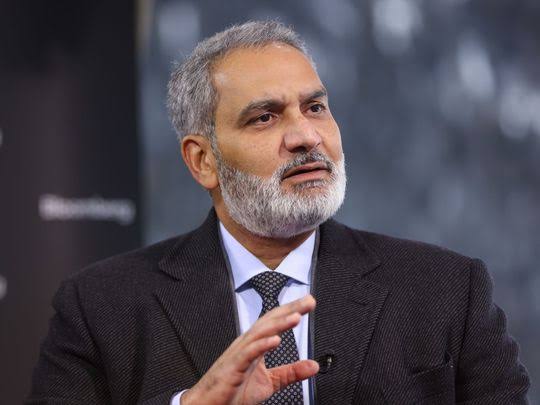The secretary general of OPEC, Haitham Al-Ghais has told the World Economic Forum in Davos that oil is not only “basically irreplaceable” but will be an essential part of the global energy mix for years to come.
Global leaders are beginning to understand the need for hydrocarbon fuels to power economic growth, even as they transition toward cleaner forms of energy, such as renewables, Al-Ghais told reporters from Arab News on the sidelines of the WEF in Davos.
Al-Ghais said “globally, there is a better understanding that is being developed of the importance of oil”, adding that OPEC has “a clear vision and strategy” about the development of renewable even though the WEF has taken an environmentalist position in recent years.
Read also: Farmers demand better climate change policies in 2023
“But oil is basically irreplaceable, in the future, as far as we can see, for the next couple of decades, at least,” he said.
He explained that the only way is that we have to fuel global economic growth by a diverse energy mix, with renewables taking up more share as the world transitions to protect climate, and hopefully keeps the targets of the 1.5 degrees (of the Paris Agreement).
“But that does not mean that oil has to be kicked out of the energy equation”. “We are not climate change deniers, but we have a different approach to dealing with this issue,” Al-Ghais said, highlighting the need for dialogue between differing sides of the energy debate.
By OPEC’s calculations, oil will still make up more than half the global energy requirement by 2045, even as renewables’ share of the world market increases and estimates that the global hydrocarbon industry will require $12.1 trillion of investment by 2045 to maintain supplies sufficient for economic growth.
Some financial institutions have stopped investing in new hydrocarbon resources because of pressure from the environmental activist lobby, but Al-Ghais said there were signs that this was beginning to change, especially in the energy heartlands of the US, including Texas and added that OPEC is also committed to developing cleaner forms of energy as an organization.
“We have to be open to adopting new forms of energy, such as renewables. Many of our member countries are already advancing this, and adopting and implementing renewables, including Saudi Arabia, of course, which is leading through the circular carbon economy and has ambitious hydrogen projects, under the leadership of (Saudi Energy Minister) Prince Abdulaziz bin Salman.”
Story was adapted from Arab News.
